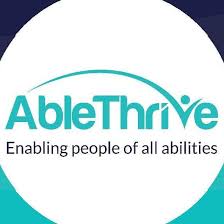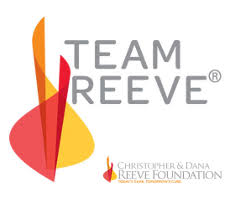|
(This blog tells my family's story. To see more, click "blog" at the top of this webpage.)
Before freshman orientation ended, Beth wheeled over to Harvard’s Phillips Brooks House Volunteer Fair. She chose the Kids with Special Needs Achievement Program (KSNAP), to help students with disabilities at an inner city Boston school. She didn’t think twice about getting to the big city once a week. She volunteered in a special education classroom every Friday afternoon and took turns with other students to plan and purchase materials for activities. Beth soon discovered the unpredictability of old elevators on the MBTA subway, called the ‘T’ for short. Other KSNAP volunteers, including her friend Brittany, moved her (in her manual wheelchair) up and down steps and escalators. Thank goodness John and I weren’t there to watch! We were grateful our youngest didn’t let obstacles get in her way, but we also worried about her safety. As Beth started classes, a swimmer from Michigan asked her to mentor a girl with a new spinal cord injury. When I heard about the emails they exchanged, Beth said, “I love mentoring!” At the Coop, I stood at a cash register in textbooks as students lined up to the back wall. While veteran staff supervised, eight of us, all new employees, rang up large bills at eight cash registers. We commiserated about our sore backs after the long shift. One evening, I worked at a cash register while Beth and Rakhi stood in a long line. On my day off, I returned to textbooks with Beth and carried a heavy stack. Her books included several thick novels for a Charles Dickens freshman seminar, her favorite class. Beth and seven other students accompanied their professor, a Dickens expert, to the catacombs of the rare book library to look at signed first editions of Dickens' books. The depths of the Widener library had not been exaggerated. When the money had been donated to build the impressive library (with over 50 miles of shelves), there were conditions. None of the original bricks could be removed on the façade. The second stipulation: all Harvard students were required to pass a swim test. Harry Widener drowned on the Titanic and his mother thought he would have survived if he had known how to swim. Hence her condition with the donation for the memorial library. The irony of it all? The swimming requirement ended because of the Americans with Disabilities Act, passed in 1990. My daughter Beth, a Harvard student with a severe disability, could easily pass a swim test. My limbs worked fine, but I probably couldn’t. Next: First laps with HWSD!
3 Comments
(This blog tells my family's story. To see more, click "blog" at the top of this webpage.)
News quickly spread during freshmen orientation about Thefacebook, a website initiated only months before for Harvard students. Beth joined her peers to ride the first wave of social networking in 2004. Orientation wrapped up with tradition. Freshmen watched the last movie filmed on the Harvard campus in 1970, Love Story, with added audience participation. Freshmen dined together in a stunning wood cathedral with stained glass windows. The chamber resembled the dining hall in the Harry Potter movies. The main entrance had many steps, so Beth wheeled the extra distance to the back entrance of Annenberg Hall to the elevator. She set a tray on her lap and could reach most of what she wanted. The friendly ladies who worked there offered to assist. Beth rarely asked for or accepted help. The 1,500 freshmen met new friends at meals, though entering alone and deciding where to sit could be intimidating. Beth preferred to snack in her room until Rakhi encouraged her to go to Annenberg more often. When they dined there together, Rakhi made sure they sat with other students. She decided on her own to identify herself as a freshman. A first-year student, yes, but in graduate school. I assumed I would do--should do—Beth’s laundry, especially during the challenging transition. I also felt the need to help, to make one small aspect of her days easier. She categorically refused. At home, she couldn’t get close to the washer and dryer with her wheelchair. In the dorm, she could reach the side-by-side appliances. Still, I attempted to change her mind. I could do it faster. She’d have more free time. I even offered to take her clothes to a laundromat, in case she didn’t want me to use the dorm laundry room. That wasn’t it. Next, I offered to pay for the laundry service on campus. Never happened. Instead, I explained how to sort clothes. I don’t think she was listening. Beth drew a line in the sand with laundry. However, doing it herself was never a priority until she put on her last pair of clean underwear. She bought extra underwear at the Gap in the Square to put the task off longer. She very slowly dragged a big, overstuffed mesh bag full of dirty clothes across the floor, down the hall, and into the elevator. Laundry soap and a baggie of quarters sat on her lap. Like many other college students, she learned the hard way that whites don’t stay white if you wash them in hot water with dark colors. Clean laundry came back up to her room in the same mesh bag and on her lap. Most of it found a home on an extra chair in her bedroom. A small price to pay for independence. (This blog tells my family's story. To see more, click "blog" at the top of this webpage.)
On my second day in Cambridge, I answered an ad from an upperclass student who needed a part-time personal care assistant (PCA). I decided my main job would have less responsibility than my earlier group home jobs, so I dropped off my resume at the Harvard Coop bookstore. Out of my comfort zone, I also didn’t have internet access, with no laptop or smart phone. I dropped by the Harvard Information Center in the Holyoke Center Arcade to check my email on one of their free computers. My third day, a young woman in a motorized scooter interviewed me briefly. First thing on the fourth day, I started the PCA job. I drove to a dorm at the Quadrangle (called the ‘Quad’) north of the main campus. Driving instead of walking turned out to be a terrible idea. Parking required circling streets around my destination for a long time to find an open spot. My new job involved a long, complicated morning routine. The fifth day in Cambridge, I left the car parked by my apartment. During inclement weather, the parking situation turned from stressful to impossible. For that reason, I walked almost everywhere regardless of the forecast, including the half hour each way to and from the Quad in the morning. I stopped back at the Coop employment office to remind the director about my application and management experience. The sixth day, the Harvard bookstore called for an interview, and on the seventh, I filled out employment papers. The bookstore was an historic co-op that paid rebates to students, which evolved into the official common name, The Coop. I worked full-time from 2 to 10 p.m. in textbooks. With the addition of my morning PCA job, I rarely saw my roommate and spent little time at the apartment during the day. When I did, I usually stayed in my bedroom with the door closed, reading books from the public library. I felt out of place in the dingy apartment. I saw Beth often during the first orientation week, shopping with her in the Square or dropping off things she needed. She met me at the main entrance of the dorm to let me in. From there, we took the elevator to her second floor suite. She thanked me for setting up her dorm room, but didn’t give me a dorm key. And I didn’t ask for one. (This blog tells my family's story. To see more, click "blog" at the top of this webpage.)
My main reason to live off-campus in Cambridge? To be available for any kind of transition support. To make sure Beth was okay. We agreed I’d have a lot of free time, so I stressed about where to apply for a job. Beth asked me to go with her the first time she swam at Harvard's Blodgett pool. She didn't know what obstacles she might encounter. I saw many challenges. The walk over the Charles River on the Anderson Memorial bridge was impossible in any kind of wheelchair because of the very high and steep curb cuts. Beth pointed out that she could wheel in the street when she was by herself, even though aggressive drivers filled the narrow lanes and turned over crosswalks. She also could avoid the bridge by calling ahead for an accessible shuttle to drop her off at the sidewalk in front of the pool. From the sidewalk to the building entrance: a significant downward slope. Heavy doors to open. Crowded lanes during the open swim. A pool chair lift was temporarily out of service. In the locker room, Beth tried to put on a swim cap, as always. She could get it mostly on, but when it bunched at the top, she pulled it off and handed it to me. I lowered her from the wheelchair to the pool deck and set her mesh equipment bag next to her with her printed workout from Peggy and goggles. I retreated to the stands to watch her swim. She stopped at times to put on hand paddles or a tempo trainer from the mesh bag, or to move for another swimmer in the lane. It wasn't easy sharing a lane with strangers, and she finished the workout early after a half hour. The corners of the pool included a much higher side, so she couldn't get herself out the usual way. Instead, she put her back to the side edge, put both hands up behind her, and lifted herself out of the pool after several tries to sit on the deck. I checked with Beth and she reluctantly agreed for me to ask one of the life guards to lift her knees while I lifted her upper body to her wheelchair. In the locker room, no shower bench meant showering in her chair (minus the cushion), not a good thing for wheel bearings. Changing clothes in her wheelchair created the biggest challenge. One task she had mastered in high school was sliding on sweatpants over a wet suit, but at college, she would have classes after swim practice some days. I sat nearby as she pulled off the wet suit inch by inch, dried off, and tackled underwear and jeans. She let me help when the jeans bunched up under her and she needed to give her arms a break. When we left the building, the slope back up to the sidewalk was not gradual. She could wheel it very slowly, but that day she let me help with my hand on one of the push handles. At Bertucci's in the square, Beth ordered a margherita pizza and talked about the pool, happy that swimming at Blodgett was doable on her own. I returned her smile, grateful for her extraordinary perspective. |
Cindy KolbeSign up for my Just Keep Swimming Newsletter by typing your email address in the box. Thanks!Categories
All
Archives
November 2022
|





 RSS Feed
RSS Feed











